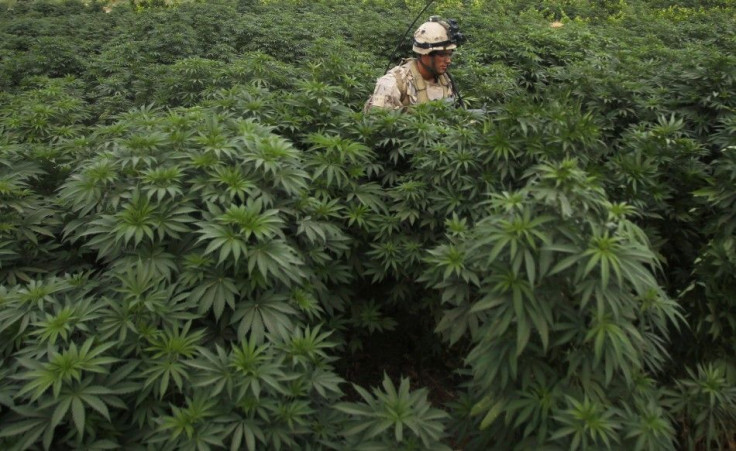Did U.S. Government Miss the Mark with Medical Marijuana Ruling?
COLUMN: Saying Marijuana has No Medical Use Loses Credibility

The DEA is wrong by not reclassifying marijuana federally as a drug suitable for use as prescriptive medical treatment.
I'm not justifying casual, un-needed marijuana use, since studies have repeatedly shown that marijuana is no different than alcohol or tobacco, legal products, in that it can and does cause problems among users, including increased risk of pulmonary infections, cell damage, a weakened immune system and psychological alterations like the drug's famous apathy effects.
But in denying marijuana for medical use, the federal government is taking a political stand rather than dealing with the facts of the matter in terms of how it impacts individuals and the nation.
Estimates suggest that more than 100 million Americans have smoked marijuana. Most of it was purchased illegally, at potency and mixes developed without any proper supervision at all.
It seems ironic to suggest marijuana be federally allowed for medical use while arguing at the same time that it has negative, if not dangerous side effects in many instances, But it seems foolish when studies have shown marijuana to actually have some medical benefit for the DEA to categorically deny that it does for reasons political.
No sitting president or political party in search of re-election votes wants that issue on their legacy, so they ignore the problem, allowing it to continue as a problem.
The DEA's position was released Friday in response to a petition filed nine years ago by groups asking the U.S. government to reclassify cannibas, or marijuana, for medical use. When the groups began to threaten legal action the the U.S. Court of Appeals to force a response, the DEA gave its position in a letter, accompanied by 37 pages of supporting documentation. They were published Friday in the Federal Register.
In the documents, DEA Administrator Michele M. Leonhart said she rejected the request because marijuana has a high potential for abuse. She also said marijuana has no currently accepted medical use in treatment in the United States and lacks accepted safety for use under medical supervision.
She's right that marijuana has a high potential for abuse. It's does, and we know this first hand because it's already at that stage. Marijuana is being abused in the U.S. at high levels, whether the DEA wants to address that fact or not.
She's wrong that marijuana has no currently accepted medical use in treatment in the United States. Many studies and physicians have shown over the years that marijuana can be beneficial in treatment for AIDs and cancer patients. There can be side effects that negate the benefits -- and that's a valid point of argument, but in saying there currently no accepted medical use in treatment in the United States, all credibility is lost.
Stimulants like Aderrall which are legally precribed have few health benefits and many side effects but the DEA allows those, presumably because drug companies lobby with millions of dollars to make it happen.
She is right that medical marijuana lacks accepted satefy for use under medical supervision. In states like California where marijuana is allowed for medical prescription problems have been encountered by the many so-called pot dispensaries where anybody can get a prescription for most any ailment cited.
Most of us do not want to live in a pot-dispensary littered nation, with every corner in America featuring marijuana the way most every corner now features alcohol and tobacco. But the reality is for America to get hold out what is already an out-of-control marijuana problem -- an illegal drug that is readily available anywhere and everywhere -- it might be time for the federal government to look at facts honestly, leaving the political ramifications at home.
If the federal government were to address the issue truthfully, and meaningful regulations were produced regulating strictly the medical prescription and use of marijuana, it's safe to say that drug enforcement authorities might have an easier time cracking down on illegal use and distribution of the drug.
One thought: Address medical marijuana while making the penalties for illegal sale and traffic of the drug much more harsh.
That's not to say that if the federal government did address the issue that anything should go the way it's been done in California, and some other states. In 2009, for instance, Los Angeles became so littered with medical marijuana dispensaries the city council began to look for ways to curb growth of the facilities, numbering more than 800 in the city.
It's only to say that the federal government is avoiding the truth and the reality, and it's always a best solution for any problem when truth and reality is embraced, so the best long-term result can be obtained.
© Copyright IBTimes 2024. All rights reserved.





















